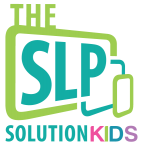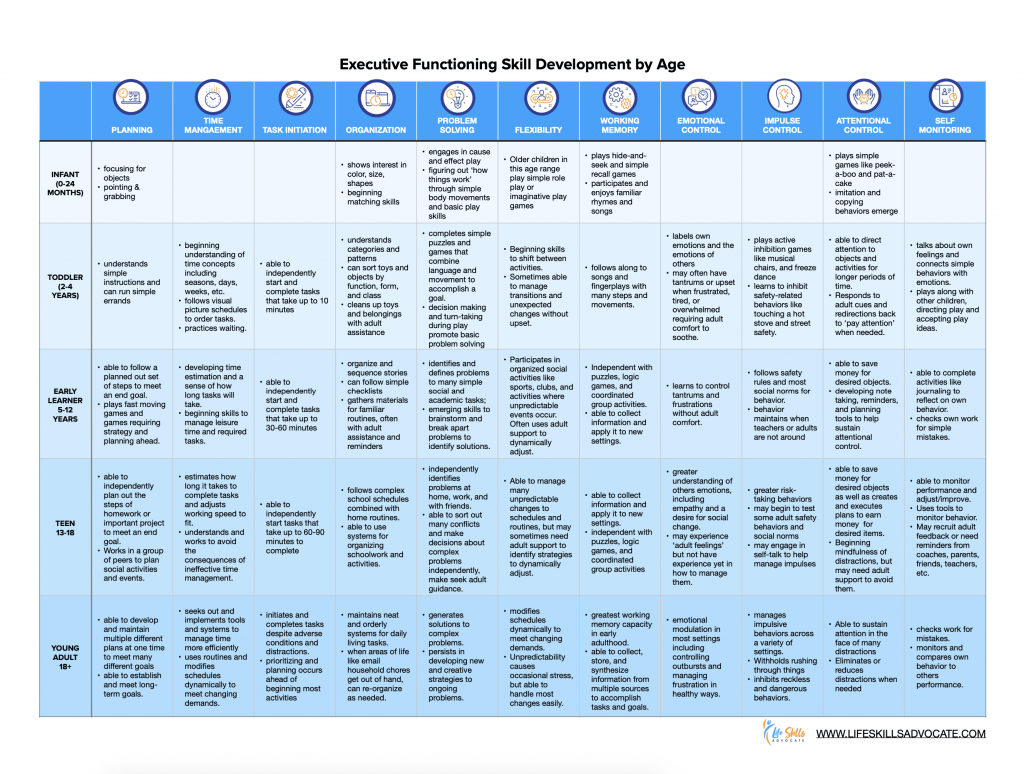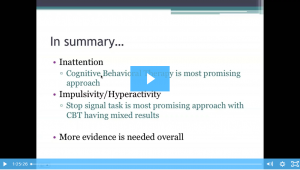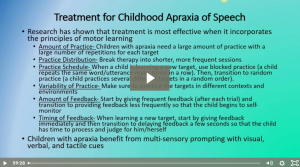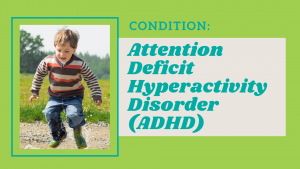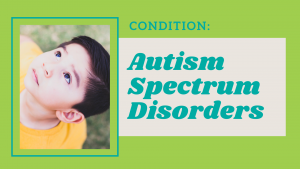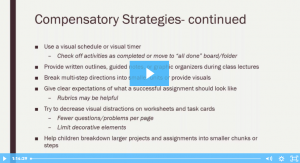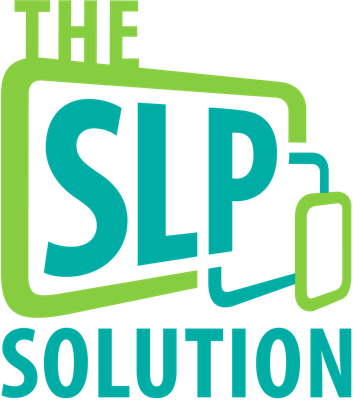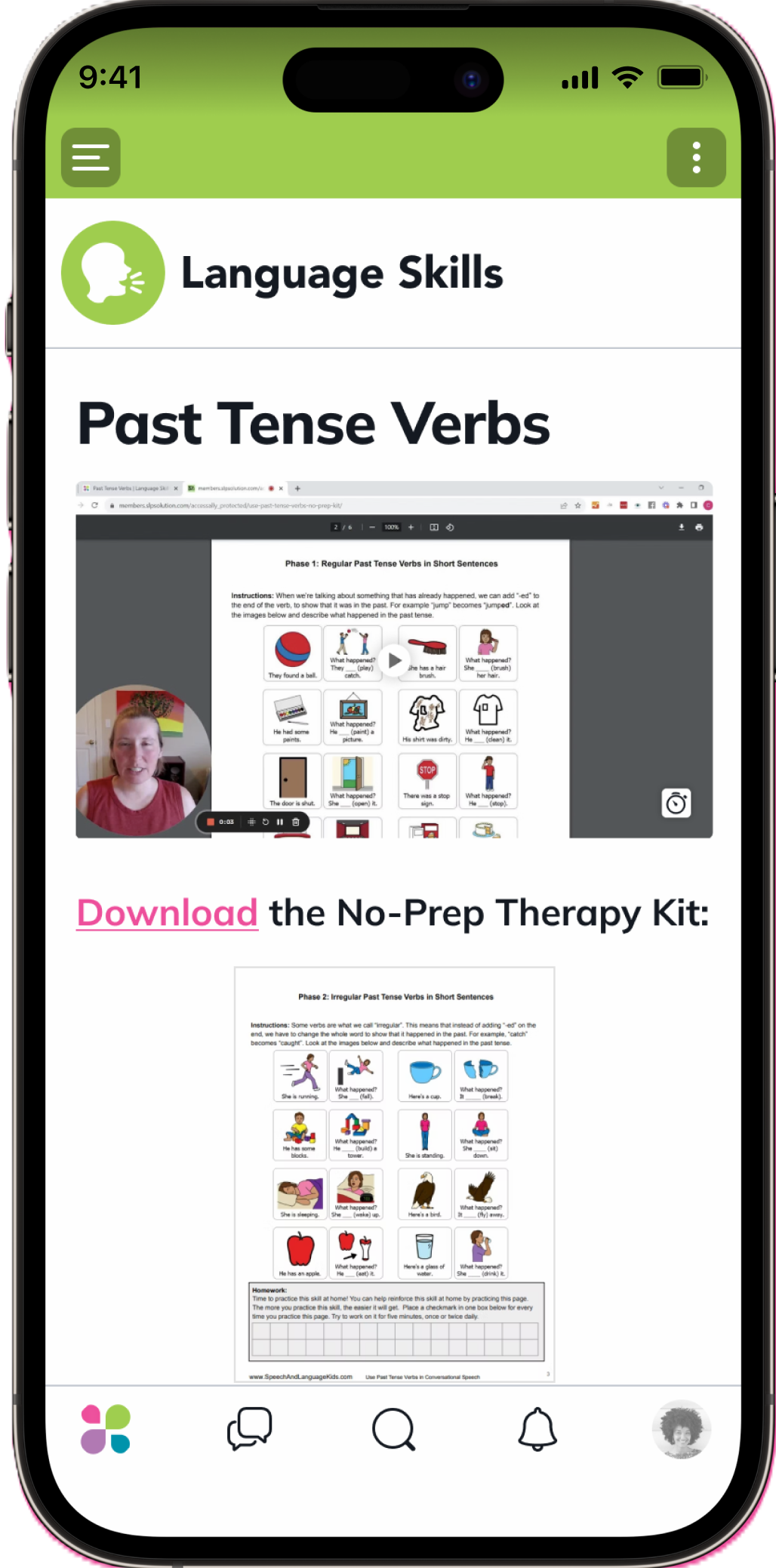Condition: Executive Functioning Deficits
Jump To:
Norms by Age Evaluation Suggested Goals Therapy
Definition:
Executive function is a set of mental skills that include working memory, flexible thinking, and self-control. We use these skills every day to learn, work, and manage daily life. Trouble with executive function can make it hard to focus, follow directions, and handle emotions, among other things.
School-based SLPs can sift through the list of skills under the executive function umbrella—task initiation, impulse control, focus, time management, working memory, accepting change, task completion, organization, self-regulation—and figure out which aspects need improvement. Once we draw a clear picture of our students’ issues, we can move on to identifying intervention strategies to use and share with colleagues.
(Source: https://leader.pubs.asha.org/doi/10.1044/leader.scm.24092019.36 )
Developmental Norms:
Executive functioning skills develop along a continuum. Children don’t just suddenly wake up one day with certain executive functioning skills in place. They develop gradually over time. We love this great chart from LifeSkillsAdvocate.com (you can download your own copy on their website so you can zoom in better):
Source: https://lifeskillsadvocate.com/blog/executive-function-skills-by-age/ (Visit her site to download a full copy)
Evaluation:
Executive functioning skills can be evaluated by a speech-language pathologist as a part of a comprehensive language and cognition evaluation. Check out our webinar with information about assessment and treatment for executive functioning:
Assessment and Treatment of Executive Functioning – Webinar Recording
This hour-long webinar recording covers both evaluations and treatment for Executive Functioning Skills.
Suggested Goals:
Executive functioning goals will vary depending on the particular deficits of the individual, but the two main components will be correcting the deficits (if possible) and teaching compensatory strategies to deal with any remaining deficits. Sometimes, especially when brain injury is involved, executive functioning problems may never be fully resolved. That’s where memory tricks, aids, and compensatory strategies can be invaluable. Here are some goals that may be helpful for children who have executive functioning goals. You can click on one of the goals below to learn more. Or, scroll down to the therapy section for more in-depth resources and support for treating this condition.
- Establish Joint Attention
- Improve Attention and Focus
Therapy:
Check out our resources below that are related to treatment of executive functioning skills:
Assessment and Treatment of Executive Functioning – Webinar Recording
This hour-long webinar recording covers both evaluations and treatment for Executive Functioning Skills.
Pediatric TBI – Webinar Recording
Full, hour-long recording of our webinar covering evaluation and treatment of pediatric traumatic brain injury.
Resources on how to assess and treat children with attention deficit hyperactivity disorder (ADHD)
Therapy Ideas for Children with Autism
Everything you need to know about working with children with autism.
Improving Focus and Attention in Middle Schoolers
Quick tips for working with middle schoolers who lack focus and attention skills.
Resources for helping children with memory problems.
SLP’s Role in Assessing and Managing Attention
Full, hour-long webinar recording covering how to assess and treat attention problems in children.
